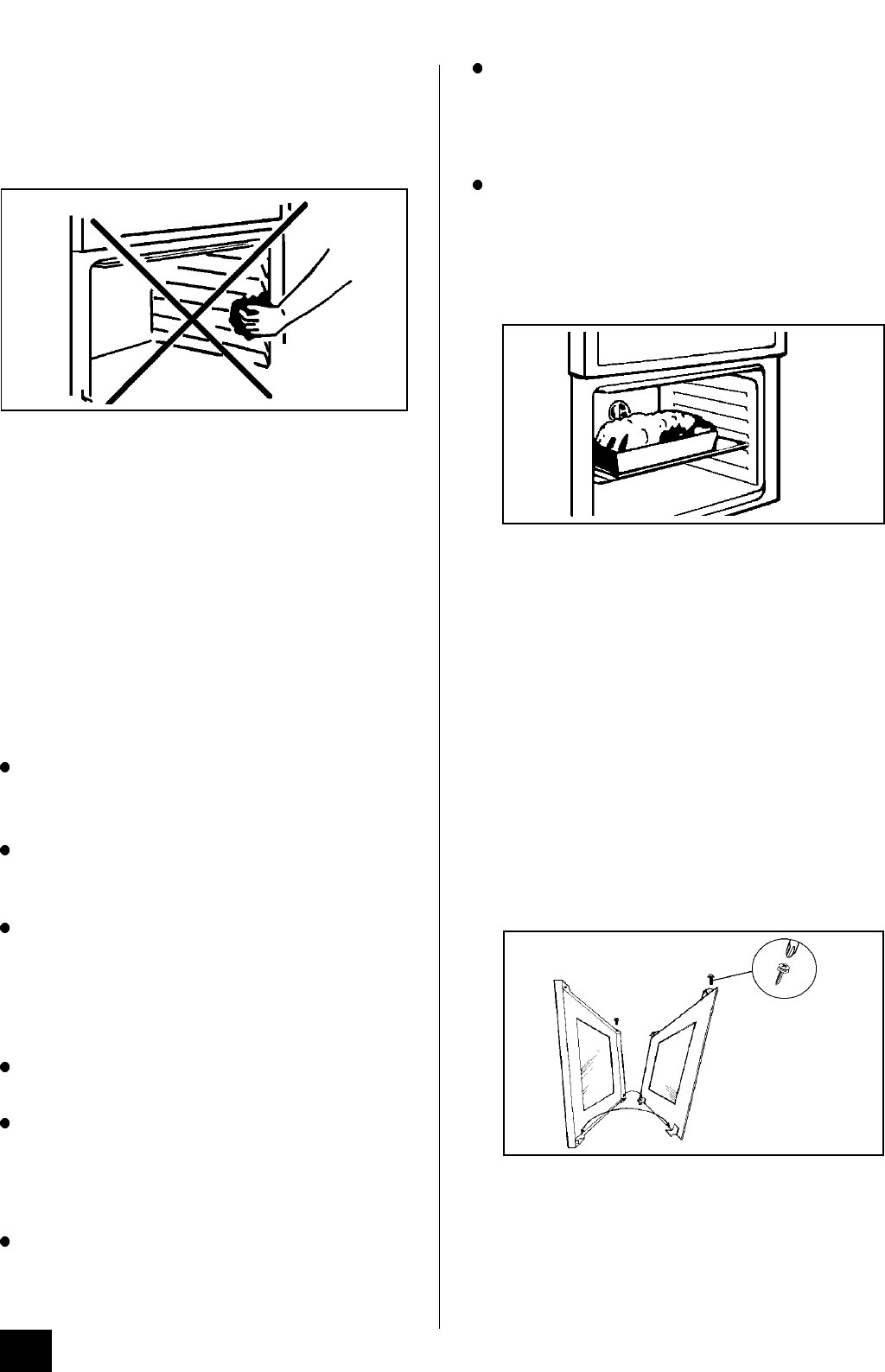
Aerosol cleaners must not be used on Stayclean
surfaces and must not come into contact with
elements as this may cause damage.
For advice on how to keep the Stayclean coating in
good condition see 'Care of Stayclean Surfaces'.
CARE OF STAYCLEAN SURFACES
Stayclean surfaces destroy splashes of food and fats
when the oven temperature is raised to around
220°C.
It is a good idea to run the oven for an hour or two
per week to ensure continued good performance
from the Stayclean finish.
Do use the trivet in the roasting tin. During roasting,
the fat from the joint will be contained beneath the
trivet and therefore prevent it from splashing onto the
Stayclean finish.
HINTS AND TIPS
Manual cleaning of Stayclean Surfaces IS NOT
recommended. Damage will occur if oven sprays or
abrasives of any kind are used.
Slight discolouration and polishing of the Stayclean
surface may occur in time. This does not affect the
Stayclean properties in any way.
A good time to allow the oven to run on is after
the weekly roast. After removing the roast, turn
the oven up to 220°C and allow to run for an hour
or so. It is important NOT to allow a build-up of
soilage as this can prevent the Stayclean from
working.
Follow the recommendations below to keep oven
soilage to a minimum.
Cook at the recommended temperatures. Higher
temperatures during roasting will increase
soilage. Try cooking at lower temperatures for an
increased length of time, you will save energy
and often the joint is more tender.
Use minimal, if any, extra oil or fat when roasting
meat, potatoes only require brushing with fat
before cooking. Extra fat in the oven during
roasting will increase splashing and soilage.
It is NOT necessary to add water to the meat tin
when roasting. The water and the fat juices from
the joint create excessive splattering during
cooking - even at normal temperatures, as well
as causing condensation.
Covering joints during cooking will also prevent
splashing onto the interior surfaces. Removing
the covering for the last 20-30 minutes will allow
extra browning if required. Some large joints and
turkeys especially benefit by this method of
cooking, allowing the joint to cook through before
the outside is over-browned.
CLEANING BETWEEN THE OUTER AND
INNER DOOR GLASS
The outer door glass is removable for cleaning.
TO REMOVE THE OUTER GLASS
1. Open the oven door slightly to gain access to the
two cross head screws on the top of the oven
door.
2. Loosen the two screws using a pozidrive
screwdriver.
3. Hold the door glass securely in place with one
hand before removing the screws completely with
the other hand.
4. Using both hands, gently tilt the top of the door
glass towards you. Lift slightly to disengage the
locators from the two bottom brackets.
5. Clean the outer and inner glass using hot soapy
water or Hob Brite may be used. DO NOT try to
clean the aluminium foil which is inside the door.
The foil is there to help keep the door cool, if it is
damaged it will not work. Ensure that all parts
are well rinsed and thoroughly dry before
attempting to replace the outer door.
2828


















